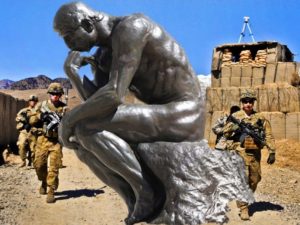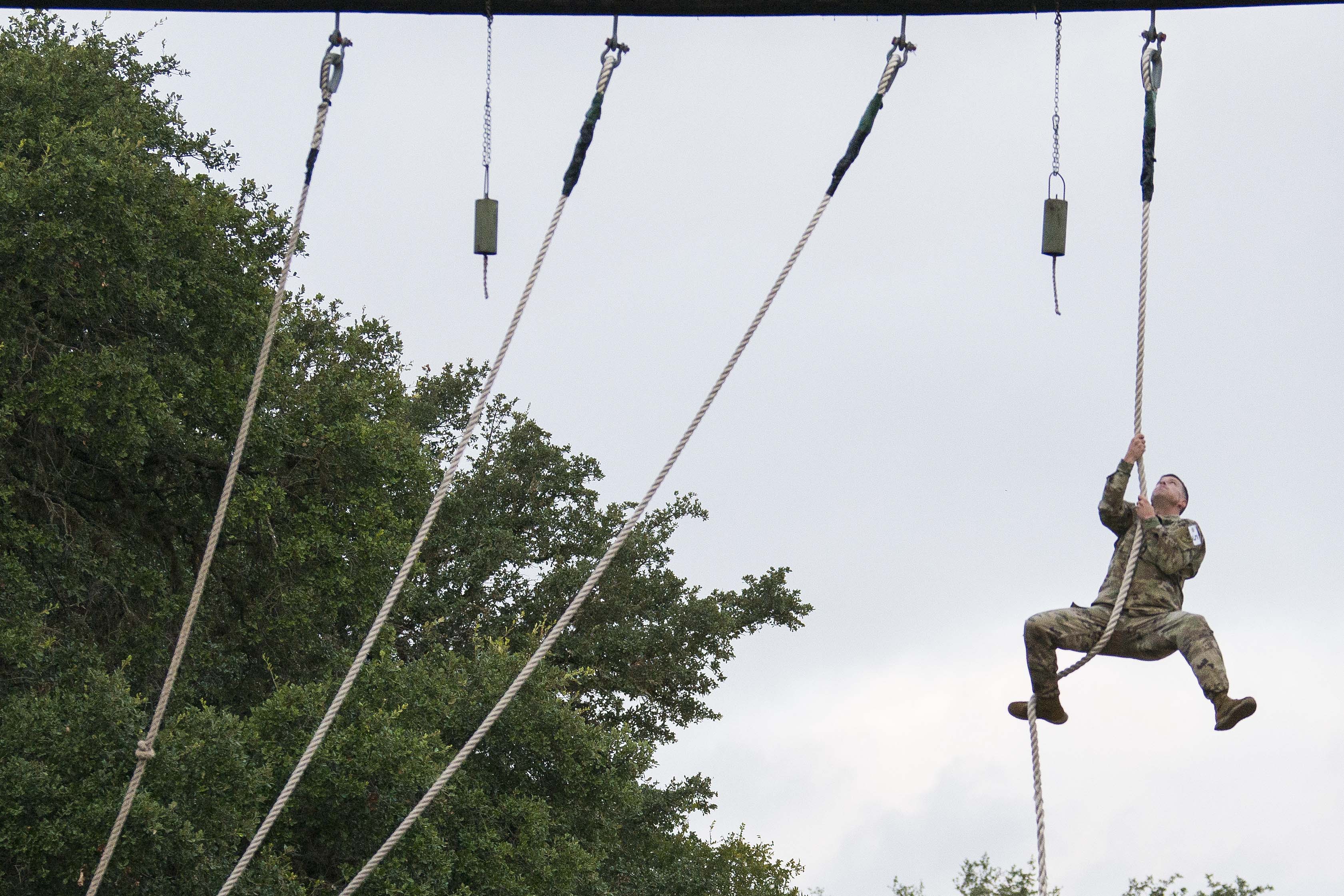
This post was originally posted as part of the American Counseling Association Blog Project. Original post can be located HERE
Consider what it was like when you first realized that you were part of something bigger than yourself. Maybe it was a team in school, or arriving for your first day at College. It’s daunting, it’s overwhelming, it’s exhilarating. Maybe it’s the first time you visit a Civil War or Revolutionary War battlefield, or step inside a church that is centuries old.
That’s how many veterans feel about the military.
Several weeks ago, I started to write a series of how the challenges of veteran mental health and the challenges that veterans face in their transition out of combat and out of the military go beyond just PTSD and TBI. In my work with veterans, there seems to be a single significant concern: the lack of meaning and purpose in their lives. Veterans are intimately familiar with this, and a recent book, Tribe, by Sebastian Junger, articulates this lack of meaning and purpose fairly well.
There is much to be said about meaning and purpose in our lives. While these questions could be just as easily discussed through the frame of reference of philosophy or spirituality, the counseling profession in particular and the mental health professional community in general can certainly support the veteran in determining how to put their doubts about meaning and purpose in place. After all, Jung and Adler were influenced by the philosopher Nietzsche, who was influenced in turn by Schopenhauer. Although William James wrote The Principles of Psychology in 1890, he was primarily considered a philosopher first and psychologist second. Frankl’s Logotherapy and the Existential Therapy of Irving Yalom and Rollo May, among many others, can provide mental health counselors the basis for helping veterans when they struggle with these questions of meaning and purpose. It is the convergence of the training and experience of counselors and the understanding of the unique experience of veterans that can provide the understanding that veterans are looking for, a place of purpose and meaning in their lives.
I recall several times in the late ‘90s, when I was assigned to the 82nd Airborne Division, where I participated in what was called “Division Review.” Every unit in the Division was represented on the Parade Field. We assembled by Battalion, and once I was in one of the front ranks: I leaned forward slightly, looked to my left and my right, and realized that I was standing out here in the sun with nearly 15,000 of my closest friends. Not only does that give you a sense of how small you are, it also gives you a sense of how you contribute to one of the most important things you’ve ever done in your life. I’ve felt that sense of perspective often; in a sky full of parachutes, crossing the Sava River in 1996, touring the Maginot Line in France. Visiting Arlington National Cemetery and Gettysburg. That sense of history, of meaning, of pride that comes from knowing what it is like to be part of something larger than myself.
The simple fact is, veterans miss the military. For whatever reason, no matter how long they’ve been out of it, there is some part of them that would go back in if they could. Nearly every veteran I’ve talked to, present company certainly included, have said that they would go back to Iraq, or Afghanistan, or Vietnam, in a heartbeat. Many of them struggle to accept that this part of their life is past, that their war is over. It’s as if many veterans are walking backwards in life, looking back on what could be romanticized as their “best” days; they were competent at what they did, they were in the best physical shape they had ever been, and people counted on them.
There is a significant change in someone when they go from doing something that was exciting, challenging, even dangerous at times, to doing something that is less so. When service members leave the military…and it happens to all of them eventually…they do so with a sense of pride and not a small amount of trepidation. They may find themselves in another career, but it may not live up to their own expectations. Without a sense of meaning and purpose in their lives, many veterans can become frustrated, bitter, and angry.
Life in the military is not always pleasant, of course. It’s very restrictive, and often both physically and mentally strenuous. There is much sacrifice…separation from family, frequent moves, potentially even the sacrifice of life. Perhaps not every service member who raised their right hand has the same level of dedication to sacrifice, but each of them understands sacrifice in the basic sense. So why would a veteran be nostalgic about a life of nearly constant change, frequent danger, and one that is often unbearably restrictive?
Because, in Man’s Search for Meaning, Viktor Frankl quotes Nietzsche when he says, “Those who have a ‘why’ to live, can bear with almost any ‘how’.”
Veterans find meaning in the work that they do. In the pride of the unit they’re in. In the camaraderie of the brothers and sisters they served with. They understand their purpose, both for small things and for large things. And when they leave the service, they are not certain about how to find that purpose in their post-military lives.
Veterans often find meaning in the places that they’ve served, and where they and others sacrificed. In 2014, I was watching the televised reports of the fall of Fallujah, and there were three Marines standing there watching it with me; two of them had fought and lost friends in Fallujah. There was certainly anger, but there was also a sense of futility and helplessness…what did we do there? Why did we leave? What, above all, was the worth of the lives that were lost?
Veterans even find meaning in the objects that they’ve collected while in the service; in their uniforms, coins, plaques and citations. These objects can almost take on a talismanic quality, reminding them of their service while also telling their story without the veteran themselves having to go into too much detail.
PTSD and TBI by themselves don’t explain this anger, this helplessness, this frustration, this nostalgia. These questions of “why” and searching for answers are often fundamental to the sense of aimlessness and purposelessness that veterans feel after leaving the service.
When working with veterans, it’s important to consider how meaning and purpose in their lives now compare to their sense of meaning and purpose when they were in the military. Understanding each individual veteran’s sense of how they explain their service to themselves, and how they explain their current lives, can help that veteran come to an awareness that they no longer have to look back on their service as the best part of their life, but look forward to a stable and purpose-filled future.




8 Comments
Dan Elder · August 22, 2016 at 5:40 am
Thanks Duane, that was an important message for all to read
Nothing Personal, Just Business | Head Space and Timing · October 20, 2016 at 5:25 am
[…] is a significant part of trying to find meaning and purpose in our post-military lives. If you, a veteran, are not passionate about what you’re doing, if it’s not personal to you, […]
Veteran Mental Health Iceberg Infographic | Head Space and Timing · February 16, 2017 at 3:08 am
[…] Meaning, Purpose, and Veteran Mental Health […]
HST 010: Doc Todd and Combat Medicine — Head Space and Timing · September 5, 2017 at 4:19 am
[…] need for meaning and purpose in a veteran’s post-military […]
Veterans, Do You Strive for Success or Significance? · November 2, 2017 at 5:26 am
[…] it’s what we can continue to do after we’re out. It’s the key part of the purpose and meaning stuff we always talk about. What are you going to do today to be significant? What is the impact that […]
The Difference Between Meaning and Purpose in Veteran Mental Health · November 30, 2017 at 6:06 am
[…] more than just something to do, it’s a desire to find something to be. I’ve written about the need for finding meaning and purpose in our post military lives, as have many, many others. It’s […]
After the Military, Finding Your What is as Important as Finding Your Why · January 18, 2018 at 5:24 am
[…] too. “What’s my purpose? What am I supposed to do now?” As I’ve often said, finding meaning and purpose after leaving the military is significant to a successful transition Even those who have had a […]
Veterans Can Find Meaning and Purpose through Service — Head Space and Timing · April 12, 2018 at 5:10 am
[…] of the most common impacts of leaving the military is loss of meaning and purpose. Regardless of why we joined, while we were in the military, service members expended energy and […]
Comments are closed.